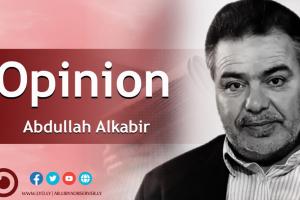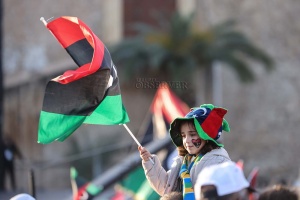By Abdullah Alkabir, Libyan political writer and commentator
The passing hurricane and the resident hurricane!

Words cannot describe the horror of the disaster, and the vocabulary of the language falls short of translating the feelings of sadness and pain, the pain of sudden loss, of those who, few hours earlier, were socializing and laughing before going to sleep, to be met with the impact of heavy rain that they thought were like those familiar in the rainy seasons, and they had prepared themselves to wake up in a new morning with streets covered in pools of water.
What multiplies sadness and pain is weakness of the preparations to respond to the disaster, as it was possible to reduce the magnitude of its damage, and save lives, by following the appropriate methods of managing the crisis, because the date of the hurricane’s arrival on the Libyan coast was known, and its path was also known, and everyone knows that heavy rain will wake the valleys from their resting place, and the torrential rain and dam water will sweep away whatever comes in their path. Experts and engineers know that the dams are cracked, threatening to collapse if the retained water exceeds the limits.
Scientific study published by the Sebha University journal last year, about the two dams in Wadi Derna, raised warning signals, and it is a strange irony that the Derna Cultural House held a scientific symposium under the title “Wadi Derna, consequences of neglect and dangers of collapses,” just few days before the disaster, which means there are voices that warned, but the failed, tyrannical authorities did not listen, or they heard but did not take the warnings seriously due to their failure to take responsibility.
We do realize that all focus at the present moment must be on rescue and relief efforts, and recovering the bodies of those who died. Nothing now overrides exerting all efforts, harnessing all capabilities to save the victims, and dealing with all effects and repercussions of the major disaster, unprecedented in our contemporary history. Previous natural disasters, such as the valley floods in recent decades and the Al-Marj earthquake, pale in comparison to the horror of the Hurricane Daniel disaster and its horrific consequences.
Later, the moment of accountability will come, as this event cannot pass without us knowing the answers to many questions.
How were the preparations for a declared hurricane? How was the crisis managed? Was its management committee up to the level of responsibility? Is it aware of the daunting and multi-dimensional task? Did the committee have experts with knowledge and experience to manage the crisis in its three stages? Is there a national figure in its leadership known for his experience and competence? Or is it headed by a frivolous, failed child who has not achieved any success in his life other than seizing bank funds?
The answers will inevitably lead us to the root cause of the afflictions in our country these years. They will lead us to the brutal authority, that obstructed the natural transition towards a more just system, after the February Revolution, it is the real hurricane residing in eastern Libya, which prevented governments from working there, and blocked all ways for young people to build their lives. Opening for them only one path that leads to death in his senseless wars. This is the hurricane that we must uproot and get rid of, by throwing it into the passing Hurricane Daniel.
Disclaimer: The views and opinions expressed in this article are those of the writer, and do not necessarily reflect those of the Libya Observer



